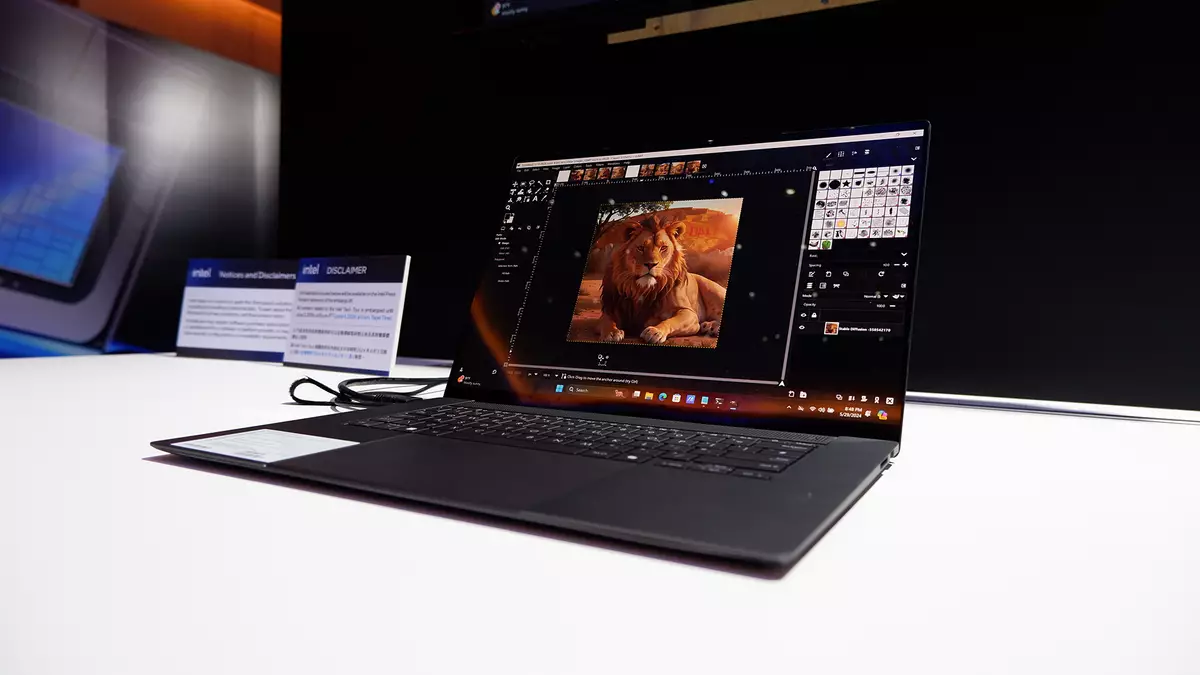The mobile computing landscape is on the brink of a significant transformation, driven by advancements in energy efficiency and innovative display technology. Intel’s upcoming Lunar Lake mobile chips are poised to be a game-changer, claiming to be the most efficient x86 processors to date. This excitement is further fueled by new developments from BOE in display technology, promising enhanced battery life for mobile devices without sacrificing performance.
Intel has been focusing heavily on creating processors that balance power and performance, and its Lunar Lake architecture is the next big step in this journey. By optimizing energy consumption, these chips aim to extend battery life significantly, which is essential for users who rely on their devices throughout the day. The intriguing proposition from Intel is the potential for mobile devices that can support demanding tasks, including gaming, while being mindful of battery drain.
Mobile gamers, in particular, have much to be excited about with the addition of Intel’s Intelligent Display Technology (IIDT) version 2.0. This technology is not merely an incremental improvement but rather a leap toward integrating advanced methodologies to optimize power usage dynamically. The balance between high performance and energy conservation could redefine mobile gaming and usage.
The anticipation surrounding Lunar Lake is amplified by BOE’s innovative Winning Display technology. This new display technology purportedly integrates with Intel’s IIDT 2.0 to deliver a staggering power reduction of up to 65% under certain circumstances. This enhancement hinges on several mechanisms: Autonomous Low Refresh Rate (ALLR), User-Based Refresh Rate (UBRR), and a feature dubbed PixOptix.
These innovations allow the display to adapt to user behavior seamlessly. For instance, if a user is focusing on taking notes while watching a video, the device can reduce the refresh rate in the less active areas of the screen, thereby conserving energy. This nuanced approach to display refresh rates not only enhances efficiency but also aligns with modern usage patterns, where multitasking dominates.
While the concept of dynamically adjusting refresh rates on different parts of the screen is innovative, it provokes a discussion about usability. The impressive claim that displays can operate at a single Hz while achieving a power reduction may leave some skeptics questioning its practicality. A refresh rate this low might significantly hinder user experience, causing potential lag when switching between applications or tasks.
Moreover, there is the concern about the constant adjustments possibly leading to an inconsistent visual experience. Users are accustomed to smooth transitions and consistent performance, making them hesitant to embrace technology that might disrupt this equilibrium. The optimization of backlight usage is crucial, but if it means compromising perceived performance quality, it could deter adoption.
As with any breakthrough, the real test lies in practical application. There have been claims from manufacturers like Asus, suggesting that their new devices, powered by Lunar Lake, can achieve up to 27 hours of battery life. But it remains to be seen how these figures translate in day-to-day usage scenarios. The theoretical efficiency arising from the combination of Intel’s chips and BOE’s display technology does paint an optimistic future—but the transition from theory to practice will be a crucial step in validating these promises.
The synergy of Intel’s Lunar Lake chips and BOE’s Winning Display technology holds immense potential for the future of mobile computing. The integration of advanced energy-saving technologies could lead to devices with enhanced longevity while maintaining performance. However, the practical execution of these innovations—including user experience considerations and real-world battery performance—will ultimately determine their success. As this technology evolves, it remains essential for consumers and tech enthusiasts alike to stay informed on how these innovations will impact daily device usage and overall mobile computing experiences.


Leave a Reply